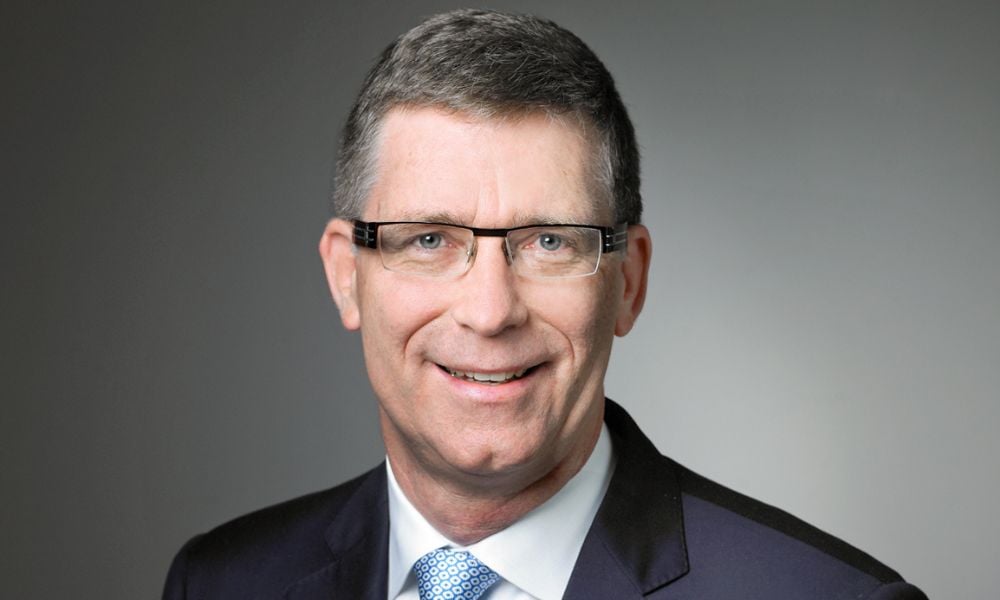Having begun his legal career in the mid-80s, Jay Park has seen the energy landscape shift dramatically. As the executive chairman of MCF Energy, he tells Lexpert that he has always focused on being at the forefront of change.
“As natural gas was deregulated in North America, as these kinds of changes in energy transition began to be accepted and applied, it’s always wise, in my opinion as a practitioner, to be at the forefront of change, to be the person most aware of the direction that things are moving,” says Park.
As energy laws and regulations continued to evolve, Park diligently monitored the horizon, even if the changes were monumental and unprecedented.
“At no time in my career have I seen so much change afoot … that’s apparent in the direction that society is going and the impacts on consumers, producers and governance,” he says. “It's a very interesting time to be working in the energy area – this transition represents a time of dynamic change to laws, regulations and administration of energy resources.
“Opportunities then exist on the legal side because business executives need to be aware of these changes, and they need to be aware of the impact that they're going to have on planning and decision-making. I think lawyers help clients by staying on top of dynamic change, educating them, and informing them, both businesses and the public, about how these changes will impact them.”
Attending industry events is crucial to staying on top of regulatory changes. Park recently attended ADIPEC 2023, a landmark event hosted in Abu Dhabi annually. This event facilitates high-level strategic dialogue and international collaboration to deliver tangible actions toward a responsible and realistic energy transition.
“What you saw in Abu Dhabi at ADIPEC was bringing together the stakeholders – environment, government, and investors – with an emphasis on the petroleum industry to discuss the transition, how it's going to work and how to make it work. What [I] felt there was that oil and gas companies are really energy companies. And as energy demand changes, they don't want to be left behind. While the future goal may be to reduce oil, gas and coal, it's certainly not anyone's view that we're going to be using less energy. We're just going to change how we generate it.”
In discussing the practical aspects of the energy transition, Park emphasizes the interconnectedness of energy consumption with economic prosperity.
"There's a 99 percent correlation between how much energy a state uses and what that state's gross domestic product is," he points out. “Energy and prosperity go hand in hand. How are we going to affect that transition? How does oil and gas form part of that transition? How can energy companies ensure a long and prosperous future involves embracing these changes? That's been the key focus – and there's a whole range of activities that’s necessary to achieve these outcomes.”
Part of ADIPEC focused on decarbonization as an accelerating area of interest. With many organizations at the forefront of decarbonization, the industry and individual governments are still grappling with a myriad of challenges.
“Challenges are common, but the circumstances are different,” says Park. “I consider the [universal] goal as building durable relationships between states that want to see their resources develop – with investors who have the capital, the technology and the expertise to do that. The state needs to create a set of rules, I call it The Petroleum Regime, that’s comprised of the law, the regulations, and the contracts they have to address to create durable relationships.”
Using a football match as a metaphor, Park says that the game demands a strict set of rules that each player must abide by. “You need a referee. You need someone who’s policing the teams and ensuring everything is fair and equitable.”
“Invite the players to play the game – not change the rules – in a way that keeps the players interested in conduct,” says Park. “You're working on issues of tenure, the duration of rights, fiscal sharing, taxation rules, payment rules, and then environmental rules because these activities have environmental impacts.”
However, while the objectives may be shared – the establishment of a robust regulatory framework – the circumstances under which they are applied can vary dramatically from one state to another.
“What’s unique, what necessitates different answers for different situations, is that you have different circumstances of various states," he tells Lexpert. “Some of them aren't producing any oil and gas – they need to explore and find out what they have. Some states have been producing oil and gas, and they want to [continue to manage] that production very well. Some states are at the end of the life of their producing oil and gas, and they want to obtain the most benefit from the marginal production that remains and is available.
“Because, while everyone wants to have similar objectives, they have different circumstances and different goals.”





